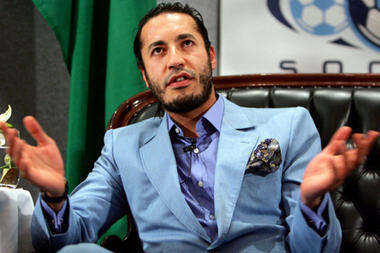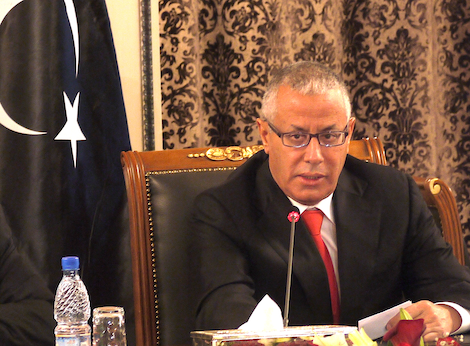By George Grant.

Tripoli, 25 November:
Niger’s President Mahamadou Issofou has said his government is ready to hand Saadi Qaddafi over to the . . .[restrict]International Criminal Court should the body request it to do so.
To date, the ICC has not issued a warrant for Saadi’s arrest, and will not request his extradition unless that position changes. On 7 November, however, the ICC’s Chief Prosecutor Fatou Bensouda revealed that the court was investigating crimes allegedly committed by both Qaddafi regime members and revolutionaries during last year’s revolution, and may bring a new case in the near future.
Issofou’s offer is likely to infuriate the government in Tripoli, with Libya having issued several futile requests to Niger to hand Saadi over in the past year.
A member of his father’s inner circle, Saadi commanded the regime’s special forces during the revolution and it is claimed that he personally ordered his men to shoot unarmed protesters at the outset of the conflict, an allegation which Saadi denies. On 4 March 2011, Interpol announced it had issued a Red Notice for Saadi’s arrest, although only on charges of theft.
The ICC is only mandated to try the most serious crimes, including war crimes, crimes against humanity and genocide, and only in such cases as the domestic authorities of any country are deemed either unable or unwilling to do so.
“On the extradition of Saadi Qaddafi… this will be done in accordance with international laws and the rule of law, and we are ready to comply with these laws”, Issofou said yesterday. “If asked by the International Criminal Court to deliver Qaddaf’s son, we are ready to place him at its disposal”.
The president also took the opportunity to describe relations between Niger and Libya as “excellent”, adding that his government was working on improving relations with all neighbouring states “and Libya in particular”.
On 21 November Prime Minister Ali Zeidan received Nigerien Ambassador Hussein Malaol at his office in Tripoli, where the two men discussed bilateral relations across a range of fields, including security and the economy. On 6 May, Libya and Niger signed a bilateral cooperation accord in the fields of security, politics, the economy, investment and transport.
Relations between Libya and Niger have been severely tested over the past year, with the government in Niamey refusing to hand Saadi over, along with several other Qaddafi loyalists taking refuge in the country, citing “humanitarian considerations”.
In September it was rumoured that South Africa was preparing to grant asylum to Saadi, pending a decision by the United Nations to let him leave Niger. He is currently the subject of a travel-ban imposed by the UN Security Council.
Back in March, relations between Niamey and Tripoli nosedived after Issofou announced that he had appointed Bashir Saleh Bashir as one of his advisors and granted him a diplomatic passport. Bashir was one of Qaddafi’s closest advisors and former head of the Libyan African Portfolio. The decision was rescinded eight days later. [/restrict]








